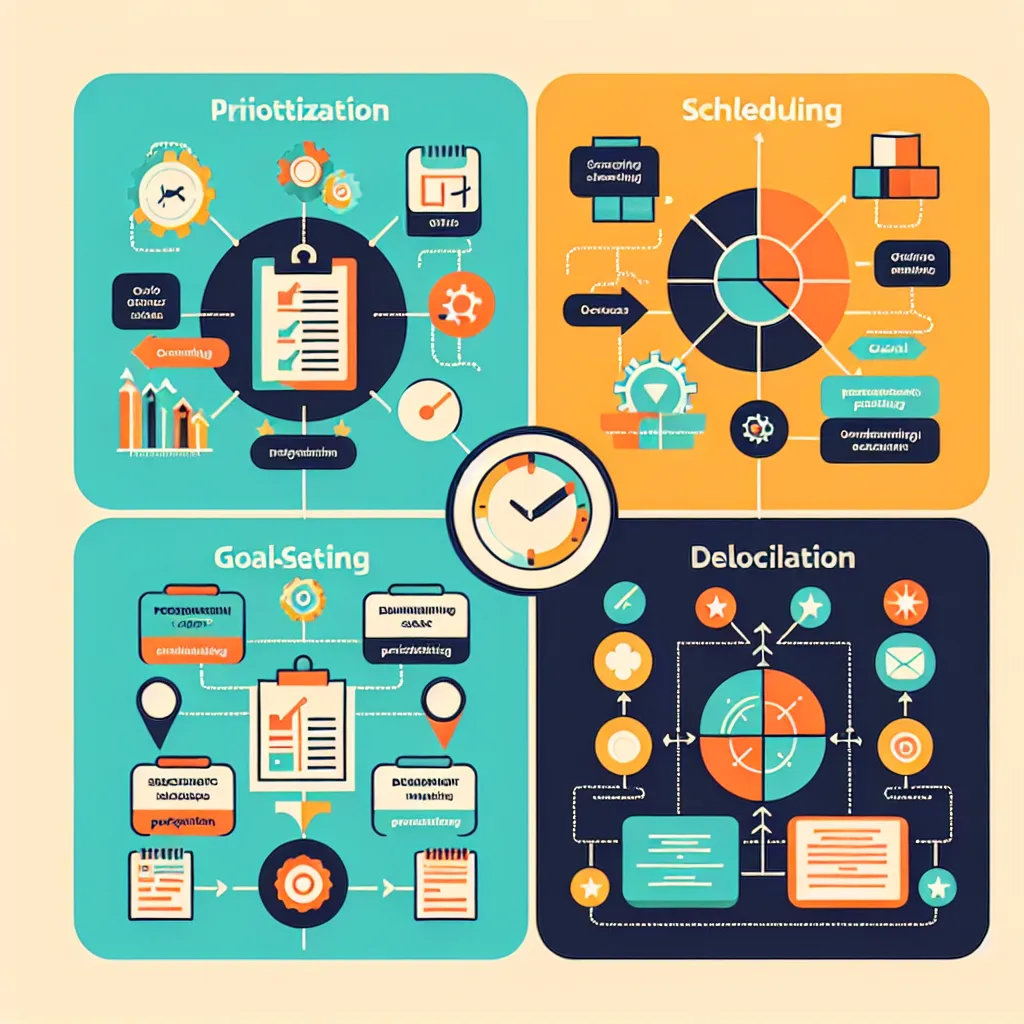Are you passionate about making a difference in the world and considering a career in the nonprofit sector? Preparing for a nonprofit interview is crucial to showcase your skills, values, and commitment to the organization’s mission. This comprehensive guide will walk you through the essential steps to ace your nonprofit interview and land your dream job in the social impact sector.
Understanding Nonprofit Interviews: What Makes Them Unique
Nonprofit interviews often differ from corporate interviews in several ways. While both types of interviews assess your skills and experience, nonprofit interviews place a greater emphasis on your passion for the cause, your understanding of the organization’s mission, and your ability to work in a resource-constrained environment.
Key Aspects of Nonprofit Interviews
- Mission alignment: Interviewers will assess how well your personal values align with the organization’s mission.
- Passion and commitment: They’ll look for genuine enthusiasm for the cause and long-term dedication.
- Adaptability: Nonprofits often require employees to wear multiple hats, so flexibility is key.
- Resource management: Your ability to work efficiently with limited resources will be evaluated.
- Collaborative skills: Teamwork and the ability to work with diverse stakeholders are crucial.
 Nonprofit Interview Preparation
Nonprofit Interview Preparation
Researching the Organization: The Foundation of Your Preparation
Before your interview, it’s essential to thoroughly research the nonprofit organization. This knowledge will demonstrate your genuine interest and help you tailor your responses to align with their mission and values.
Key Areas to Research
- Mission and vision: Understand the organization’s core purpose and long-term goals.
- Programs and initiatives: Familiarize yourself with their current projects and impact.
- Recent news and achievements: Stay updated on their latest accomplishments and challenges.
- Funding sources: Understand how the organization is funded and any financial constraints.
- Leadership and structure: Research key figures in the organization and its overall structure.
Crafting Your Nonprofit Narrative: Connecting Your Experience to the Mission
One of the most critical aspects of a nonprofit interview is demonstrating how your skills and experiences align with the organization’s mission. Prepare a compelling narrative that showcases your passion for the cause and your ability to contribute meaningfully.
Tips for Crafting Your Nonprofit Narrative
- Identify relevant experiences: Highlight volunteer work, previous nonprofit roles, or projects that align with the organization’s mission.
- Quantify your impact: Use specific numbers and metrics to demonstrate the results of your past work.
- Emphasize transferable skills: If you’re transitioning from a different sector, focus on skills that are valuable in the nonprofit world.
- Share personal connections: If appropriate, discuss personal experiences that have drawn you to the cause.
- Practice storytelling: Develop concise, engaging stories that illustrate your passion and skills.
Common Nonprofit Interview Questions and How to Answer Them
Preparing for common interview questions will help you feel more confident and articulate during your nonprofit interview. Here are some frequently asked questions and tips on how to answer them effectively.
1. “Why are you interested in working for our organization?”
This question assesses your alignment with the organization’s mission and your understanding of their work.
Sample answer: “I’ve been following your organization’s work in providing clean water to rural communities for several years. Your innovative approach to sustainable water solutions aligns perfectly with my background in environmental engineering and my passion for global health. I’m particularly impressed by your recent project in Ghana, which provided access to clean water for over 10,000 people. I believe my skills in project management and my experience working in developing countries could contribute significantly to expanding the reach and impact of your programs.”
2. “How do you handle working in a resource-constrained environment?”
Nonprofits often operate with limited resources, so your ability to be creative and efficient is crucial.
Sample answer: “In my previous role at a small community organization, we faced significant budget constraints. I implemented a volunteer management system that allowed us to effectively utilize skilled volunteers for tasks we couldn’t afford to outsource. This not only saved us money but also increased community engagement. Additionally, I’m experienced in seeking out pro bono services and negotiating with vendors for discounted rates. I believe that resource constraints can foster creativity and innovation, pushing us to find unique solutions to challenges.”
3. “How do you measure success in your work?”
This question evaluates your understanding of impact measurement and your results-oriented approach.
Sample answer: “I believe in setting clear, measurable goals aligned with the organization’s mission. In my last role, I developed a comprehensive monitoring and evaluation framework for our youth mentorship program. We tracked both quantitative metrics, such as the number of mentees who graduated high school, and qualitative data through regular surveys and focus groups. This allowed us to demonstrate the program’s impact to funders and identify areas for improvement. I’m also a strong advocate for regularly reassessing our metrics to ensure they accurately reflect our mission and the communities we serve.”
4. “How do you handle disagreements with colleagues or stakeholders?”
Nonprofits often involve working with diverse groups, so your conflict resolution skills are important.
Sample answer: “I approach disagreements with a collaborative mindset, focusing on our shared goals. In a recent project, I had a difference of opinion with a colleague about the best approach to a community outreach program. Instead of pushing my idea, I suggested we meet to discuss our perspectives and concerns. By actively listening and finding common ground, we were able to develop a hybrid approach that incorporated the strengths of both our ideas. This experience reinforced my belief in the power of open communication and compromise in resolving conflicts.”
5. “How do you stay motivated when facing challenges or setbacks?”
This question assesses your resilience and commitment to the cause.
Sample answer: “I stay motivated by keeping the bigger picture in mind and remembering the impact of our work. When facing setbacks, I find it helpful to break down large challenges into smaller, manageable tasks. I also believe in the power of collaboration – discussing challenges with colleagues often leads to fresh perspectives and renewed energy. Additionally, I make a point to regularly connect with the communities we serve, as their stories and progress remind me of why our work is so important. This balance of pragmatic problem-solving and maintaining a connection to our mission helps me stay motivated and resilient in the face of challenges.”
Demonstrating Your Skills: Preparing for Scenario-Based Questions
Nonprofit interviews often include scenario-based questions to assess how you would handle real-world situations. Here are some examples and tips on how to approach them.
1. Fundraising Scenario
Question: “Our organization is facing a funding shortfall for a crucial program. How would you approach raising the necessary funds in a short timeframe?”
Approach: Outline a multi-faceted strategy that includes:
- Identifying and reaching out to potential major donors
- Organizing a targeted crowdfunding campaign
- Exploring grant opportunities
- Leveraging partnerships with local businesses
- Organizing a community fundraising event
Emphasize your ability to prioritize actions based on the timeline and potential impact.
2. Volunteer Management Scenario
Question: “We’re experiencing high turnover in our volunteer program. How would you improve volunteer retention?”
Approach: Discuss a comprehensive plan that includes:
- Conducting exit interviews to understand reasons for leaving
- Implementing a robust onboarding and training program
- Creating clear role descriptions and expectations
- Establishing a volunteer recognition program
- Providing opportunities for skill development and leadership
- Regularly seeking feedback and making improvements
Highlight your experience in volunteer management or team leadership.
3. Community Engagement Scenario
Question: “We’re launching a new program in a community where we haven’t worked before. How would you approach building trust and engagement with local stakeholders?”
Approach: Outline a strategy that involves:
- Conducting thorough research on the community’s needs and existing resources
- Identifying and reaching out to key community leaders and organizations
- Organizing community listening sessions to gather input
- Collaborating with local partners to design and implement the program
- Ensuring transparent communication throughout the process
- Establishing mechanisms for ongoing feedback and community involvement
Emphasize your cultural sensitivity and experience in community-based work.
 Nonprofit Scenario Planning
Nonprofit Scenario Planning
Asking Thoughtful Questions: Demonstrating Your Interest and Insight
Asking insightful questions during your nonprofit interview not only helps you gather important information but also demonstrates your genuine interest and critical thinking skills. Here are some examples of thoughtful questions you can ask:
- “How does the organization measure its impact, and how have these metrics evolved over time?”
- “What are the biggest challenges facing the organization in the next 1-3 years, and how is the team preparing to address them?”
- “Can you tell me about the organization’s approach to diversity, equity, and inclusion, both internally and in its programs?”
- “How does the organization balance the need for innovation with the importance of maintaining stable, proven programs?”
- “What opportunities are there for professional development and growth within the organization?”
- “How does the organization collaborate with other nonprofits or stakeholders in the sector?”
- “Can you share an example of how feedback from beneficiaries or community members has influenced the organization’s strategy or programs?”
Common Mistakes to Avoid in Nonprofit Interviews
While preparing for your nonprofit interview, be aware of these common pitfalls:
- Lack of mission alignment: Failing to demonstrate a genuine connection to the organization’s mission.
- Overemphasis on personal gain: Focusing too much on what you’ll get from the job rather than how you can contribute.
- Insufficient research: Not showing a deep understanding of the organization’s work and recent achievements.
- Inability to provide concrete examples: Failing to back up your skills and experiences with specific, relevant anecdotes.
- Neglecting the financial realities: Not acknowledging the resource constraints and unique challenges of nonprofit work.
- Lack of cultural sensitivity: Failing to demonstrate awareness of the diverse communities the organization serves.
- Ignoring the collaborative nature of nonprofit work: Not emphasizing your teamwork and stakeholder management skills.
Follow-up Questions and Suggested Responses
Here are some additional follow-up questions you might encounter in a nonprofit interview, along with suggested responses:
-
Q: “How do you stay informed about trends and best practices in the nonprofit sector?”
A: “I regularly read nonprofit publications like the Stanford Social Innovation Review and attend webinars hosted by organizations like the National Council of Nonprofits. I’m also part of a local nonprofit professionals network where we share insights and discuss emerging trends.” -
Q: “How would you approach building partnerships with other organizations in our field?”
A: “I would start by mapping out potential partners whose missions align with ours. Then, I’d reach out to initiate conversations about shared goals and potential collaboration opportunities. I believe in starting with small, achievable joint projects to build trust before expanding to larger initiatives.” -
Q: “How do you ensure that your work remains focused on the needs of the communities we serve?”
A: “I’m a strong advocate for participatory approaches. This includes regular community consultations, involving beneficiaries in program design and evaluation, and creating feedback mechanisms that allow for continuous improvement based on community input.” -
Q: “Can you discuss a time when you had to make a difficult decision that impacted multiple stakeholders?”
A: “In my previous role, we had to decide whether to continue a popular program that wasn’t showing measurable impact. I led a process that involved gathering data, consulting with beneficiaries and team members, and ultimately recommending that we redirect resources to more effective initiatives. While it was a tough decision, our transparent approach helped maintain trust with all stakeholders.” -
Q: “How do you approach working with a board of directors or advisory committee?”
A: “I view the board as a valuable resource and partner in achieving the organization’s mission. I focus on providing clear, concise updates on program progress and challenges, actively seeking their input on strategic decisions, and leveraging their expertise and networks to advance our goals.”
Conclusion: Putting It All Together for a Successful Nonprofit Interview
Preparing for a nonprofit interview requires a combination of passion, knowledge, and strategic thinking. By thoroughly researching the organization, crafting a compelling narrative that aligns with their mission, and preparing for common questions and scenarios, you’ll be well-equipped to make a strong impression.
Remember to demonstrate your genuine commitment to the cause, your ability to work effectively in a resource-constrained environment, and your skills in collaboration and stakeholder management. Be prepared to discuss concrete examples of your past experiences and how they relate to the organization’s work.
Lastly, approach the interview as a two-way conversation. Ask thoughtful questions that show your interest and insight, and use the opportunity to assess whether the organization is the right fit for your skills and career goals.
With these strategies in hand, you’ll be well-prepared to showcase your potential and secure a rewarding position in the nonprofit sector. Good luck with your interview!




